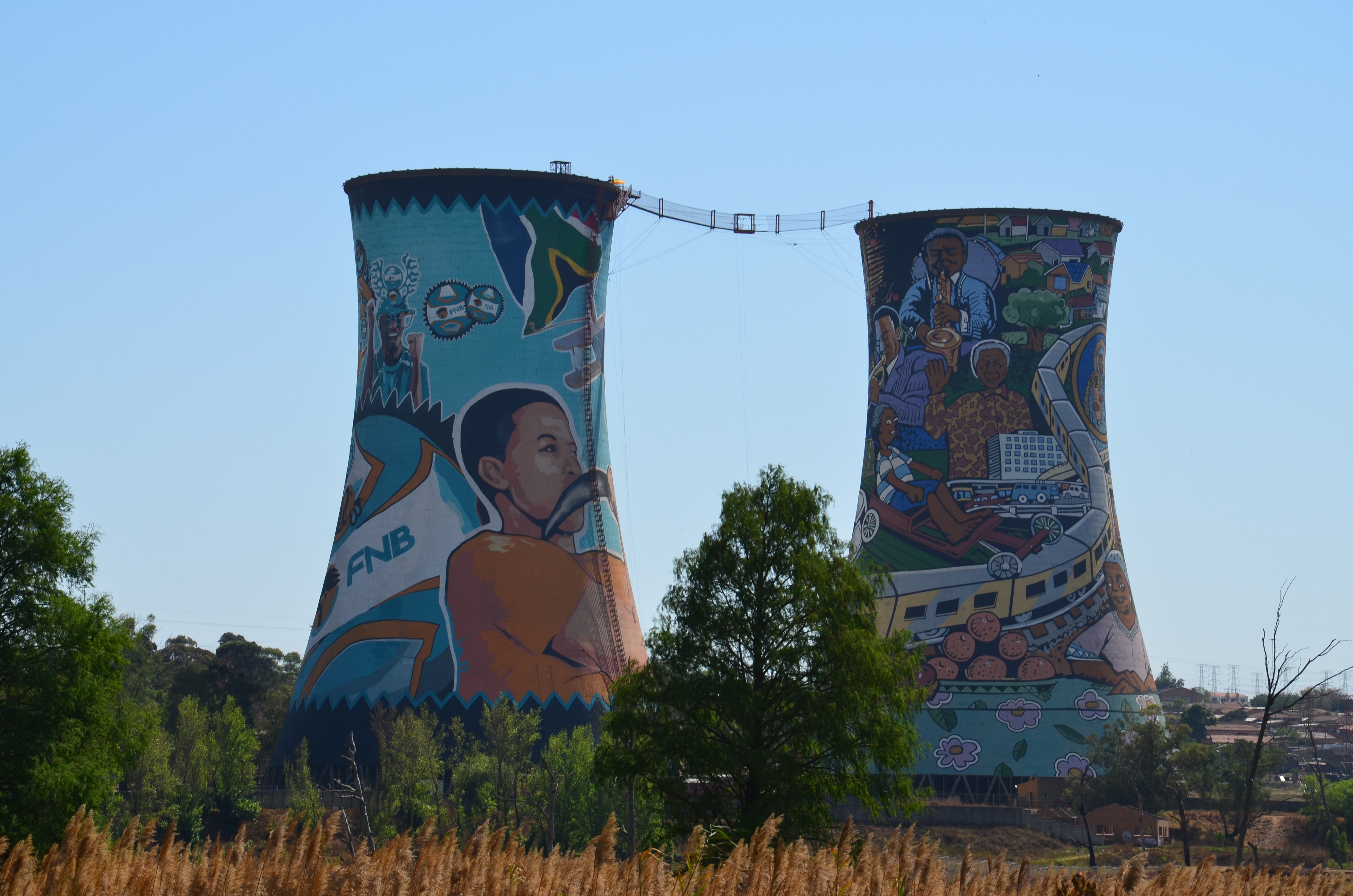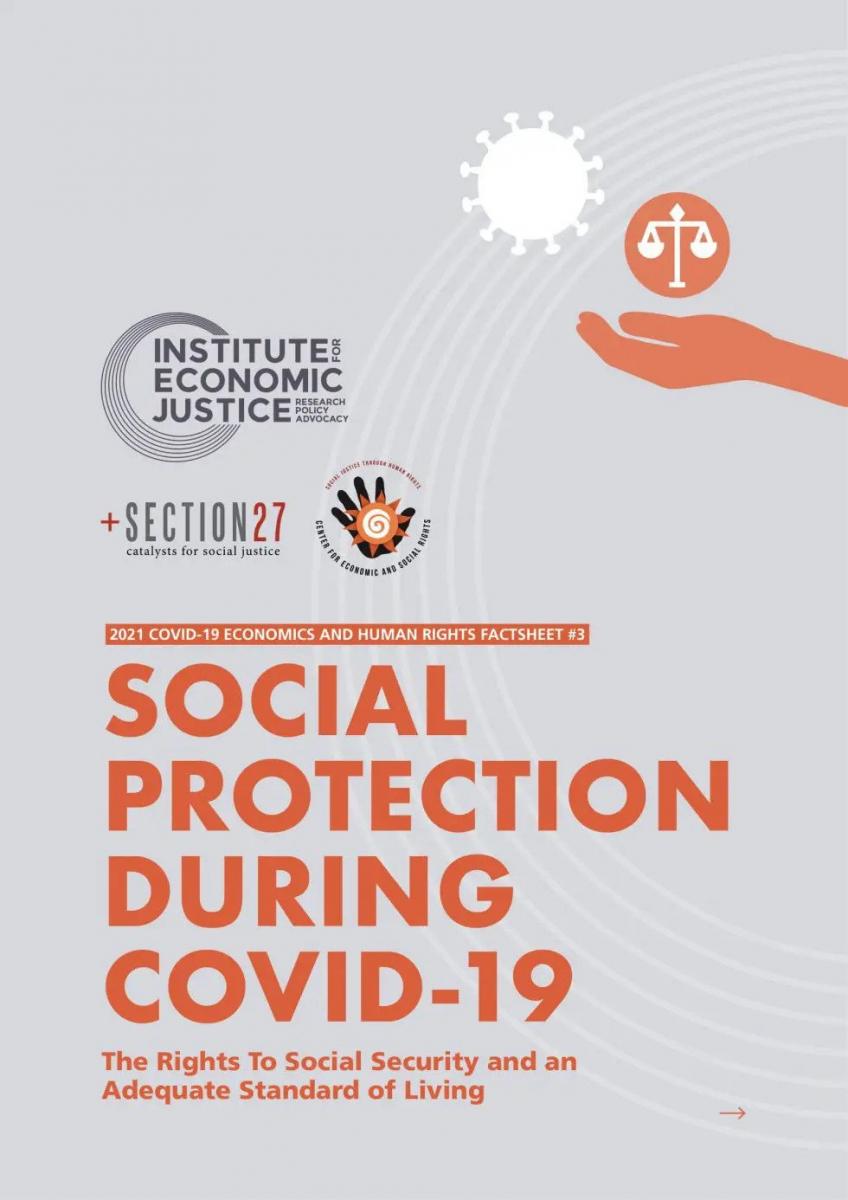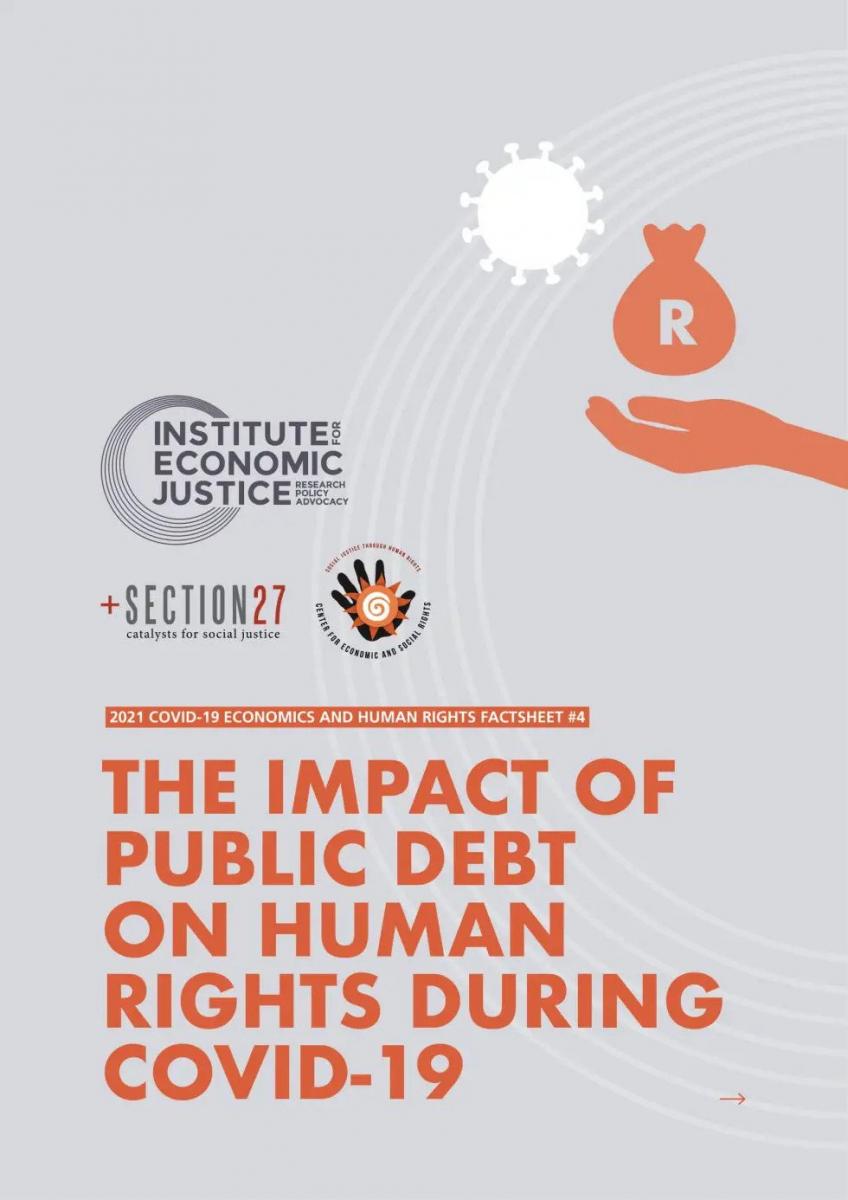
In this collaborative series between the Institute for Economic Justice, CESR and SECTION27, we explore the link between economics and human rights during COVID-19 in South Africa, in a series of factsheets covering key topics:  1. Budgeting for Human Rights during COVID-19:
1. Budgeting for Human Rights during COVID-19:
The COVID-19 pandemic has shown how important it is to invest in social programs. Many of South Africa’s public services, including the public health system, remain underfunded, despite increased investment since democracy. This exacerbates high levels of inequality, now worsened by the lockdown measures to curb the spread of the pandemic. In this context, the government’s response to the pandemic should be more focused on maximizing available resources to protect human rights: to support access to water and sanitation; food sovereignty; resilient healthcare and education systems; and to ensure essential support for households hard hit by the pandemic and economic depression.

South Africa faces a major unemployment crisis, alongside a deeply unequal employment system. The COVID-19 pandemic has worsened this crisis, exacerbated by the weak, and poorly implemented, protections offered by the government. At the same time, an unsafe reopening of the economy could jeopardize rights at work, placing many workers and their families at risk.
 3. Social Protection During COVID-19
3. Social Protection During COVID-19
In our third factsheet on economics and human rights during COVID-19, we consider the question of social protection in South Africa. In doing so, we draw on the Concluding Observations of the United Nations Committee on Economic, Social and Cultural Rights into South Africa’s implementation of the International Covenant on Economic, Social and Cultural Rights (ICESCR). This factsheet focuses on two important aspects of the ICESCR: Articles 9 and 11, which cover the right to social security and the right to an adequate standard of living respectively. We provide an assessment of the South African government’s obligations by drawing on the Committee’s concerns and recommendations to government.
 4. The Impact of Public Debt on Human Rights During COVID-19
4. The Impact of Public Debt on Human Rights During COVID-19
Austerity has often been the prescribed policy to deal with so-called “unsustainable” debt. This is evident in recent budget cuts in South Africa. In this factsheet we argue that these will not help South Africa’s debt situation but will in fact threaten rights realisation. Rather, the government must expand the provision of public goods and services by developing a macroeconomic policy framework to tackle the poverty and inequality crisis. This is in line with the idea that debt sustainability must be considered in broader terms, including accounting for rights.